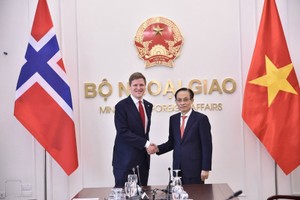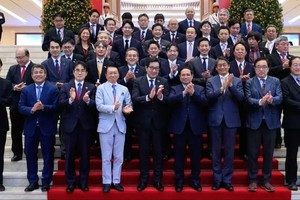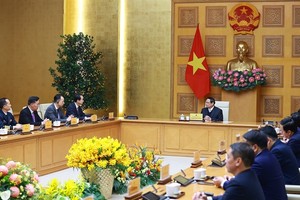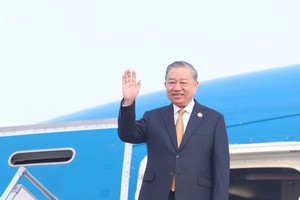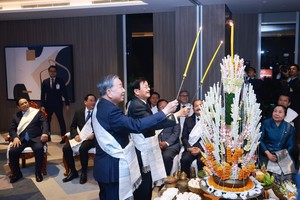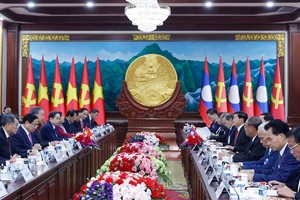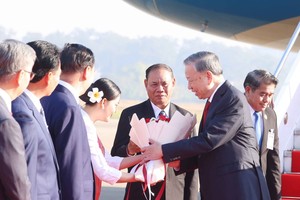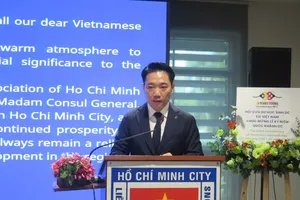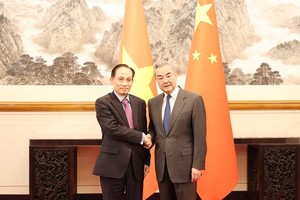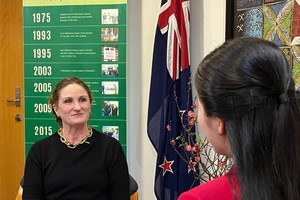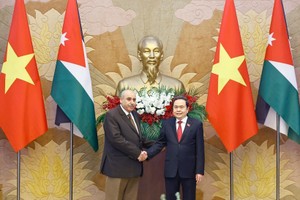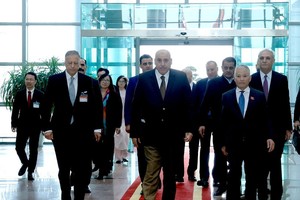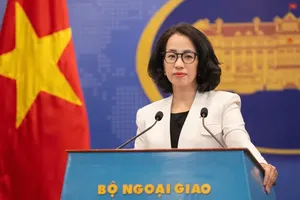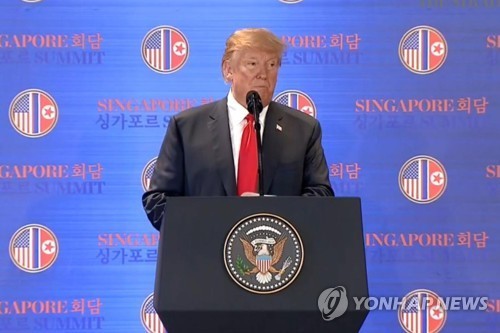
Trump made the remarks during a press conference that followed his historic summit with North Korean leader Kim Jong-un on the Singaporean resort island of Sentosa.
"War games are very expensive," he said, raising the issue of their cost.
"I think it is very provocative ... You have a country that is right next door," he added, referring to the communist state.
His remarks underscored his apparent transactional approach to diplomacy.
Amid the growing mood for reconciliation, the possibility has emerged that Seoul and Washington could consider scaling back the regular annual drills, including the summertime Ulchi Freedom Guardian (UFG).
But conservatives in the South argued that any change to the exercises plans could lead to a weakening of the security alliance, the centerpiece of deterrence against the North's possible aggression.
In the face of the North's constant protest, the allies' militaries have defended the exercises as purely defensive in nature.
The allied exercises are based on joint contingency plans that outline a series of procedures to handle a wide range of scenarios, such as a full-blown war triggered by the North's attacks.
In 1992, Seoul and Washington canceled their "Team Spirit" exercise amid dialogue with the North, which resumed the following year.
The U.S. Forces Korea (USFK) said later that it has received no updated guidance on the execution or cessation of training exercises, including the UFG slated for August.
"In coordination with our ROK (South Korean) partners, we will continue with our current military posture until we receive updated guidance from the Department of Defense and/or Indo-Pacific Command," the USFK said in a statement.
During the press conference, Trump also said that North Korean leader Kim is destroying a key missile engine testing site, without specifying its location.
The destruction appears aimed at easing Washington's concerns about Pyongyang's intercontinental ballistic missile (ICBM) capable of targeting the U.S. mainland.
The ICBM has been a grave concern for the U.S., as the North was seen using the missile capability to keep American forces at bay and undercut the credibility of the U.S.' security commitment to its Asian allies.
Regarding the issue of 28,500 American forces stationed in the South, Trump said he wants to "bring them back home," but the issue was "not part of the equation right now."
Ahead of the summit with Kim, speculation persisted that the two sides might discuss withdrawing the U.S. troops from the South, as Pyongyang has called for the pullout as a key signal to the end of Washington's "hostile" policy to it.
Following the unprecedented summit, Trump and Kim signed a joint statement in which they agreed to craft "new" bilateral relations and make joint efforts to build a "lasting and stable" peace regime on the peninsula.
Trump and Kim arrived in Singapore on Sunday and are set to leave later on Tuesday.
